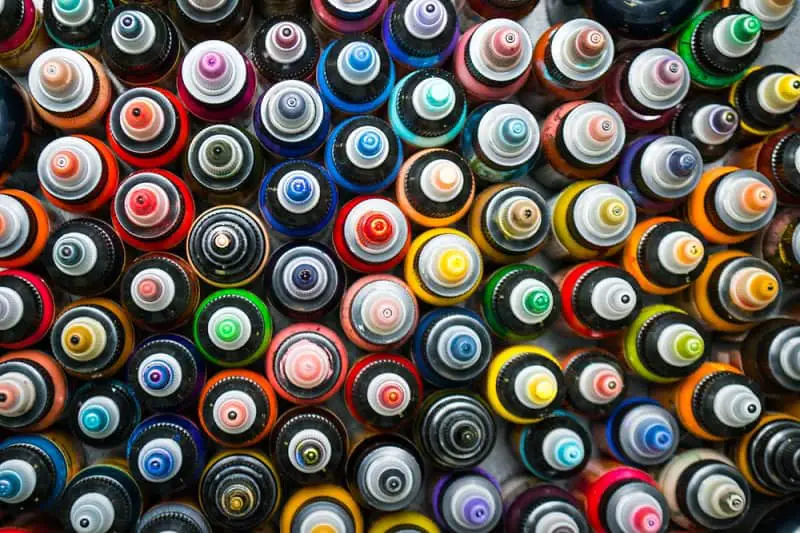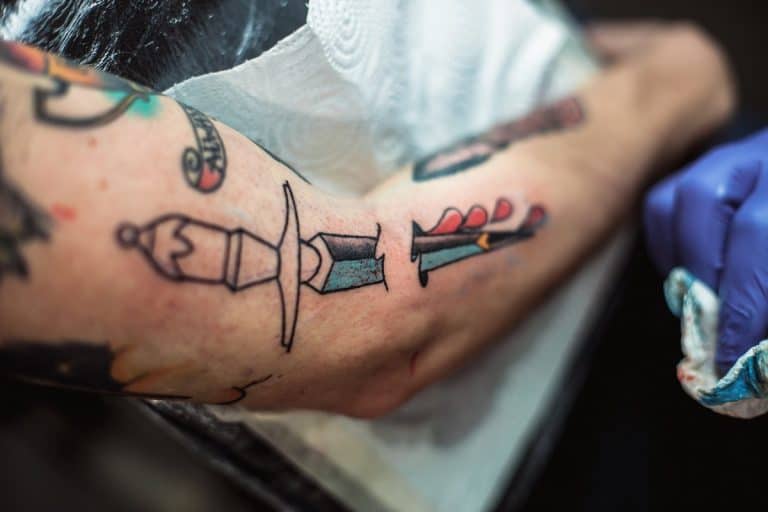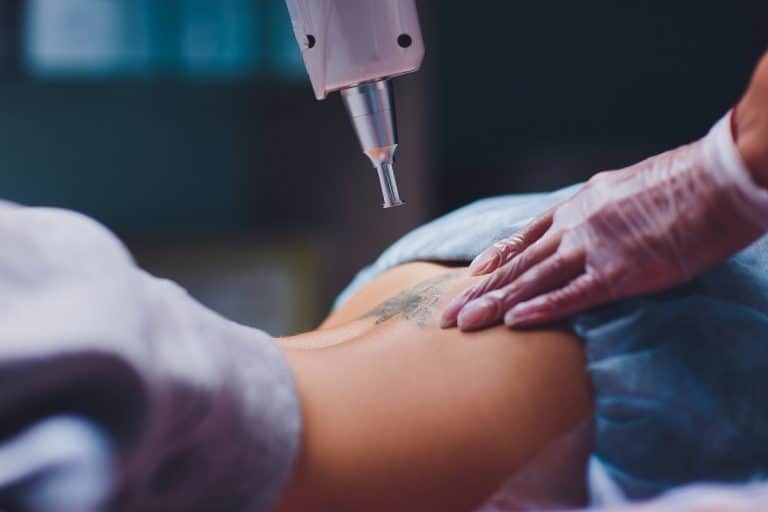Is It True That Tattoos Cause Liver and Kidney Damage?
When you decide to get a tattoo, the first thing that you can think of is how amazing and cool it’s going to look. Few people actually think of the possible side effects of getting a tattoo. Some don’t even check whether they’re allergic to the ink, which later creates major issues causing tattoo infections, etc. But there is one question that a lot of people do ask; can tattoos really cause liver or kidney damage and disease, or is that just a myth?
In the following paragraphs, we’ll take a look at some health concerns regarding tattoos and see whether getting tattooed can really damage your precious kidneys and liver. So, without further ado, let’s started!
Tattoos and Main Health Concerns
Tattooing Explained
We all know what getting a tattoo means, but many of us don’t really understand the process. So, let’s start by simply explaining what a tattoo artist does to place the ink beneath your skin and make it stay there.
Tattoo artists inject colorants or ink into the skin using needles that are actuated by tattoo machines. The colorants or the ink are generally purchased by reliable online suppliers. Now, when the artist pushes the needle beneath the very skin surface, the ink is placed in the dermis of the skin in form of small particles.
Small parts of that ink are absorbed by the surrounding tissue, while the rest simply enters the blood vessel system. That is why ink can be found in the lymph nodes next to the tattooed skin area.
So, if you were wondering where all the health concerns stem from, this is it. The problem stems from the fact that ink doesn’t simply stay in one place; the excess ink moves through the blood or rests in the tattooed area and surrounding tissue.
Tattoo Colorants or Ink Explained

Tattoo colorants or ink are generally described as pigments or dyes. But, the chemical structure of the ink as a pigment is usually insoluble, which is important for the medium where the pigment is used and incorporated. The pigment is how tattoo artists create stable and persistent tattoos.
Now, there are two types of pigment; organic and inorganic.
In the past, the majority of tattoo artists used inorganic pigment, which generally contained heavy metals like chromium, mercury, or cadmium. As a result, the pigment wasn’t just black but achieved colors like red (mercury sulfide) or yellow (cadmium sulfide). The black ink was a mixture of carbon black and titanium dioxide.
Organic pigment is mostly used nowadays. The chemical structure or organic colorants comprises organic pigments or polycyclic pigments. These pigments have proven better in terms of color payoff and vividness or vibrancy.
Now, when we talk about pigments for ink, it is essential to mention that colorants do not have and pharmaceutical requirements. So, alongside the standard chemical structure, colorants can contain by-products of the coloring compounds as well as various impurities. Therefore, the complete ‘ingredient’ list of the colorants is incomplete and varies from one colorant to the other. The same issue applies to black colorants as well as colored pigments.
Tattoo Colorants and Health Concerns
Colorants or ink, especially the black ones are usually produced using polycyclic aromatic hydrocarbons or PAHs. Furthermore, the black ink is generally made from Carbon black, which is listed as possibly carcinogenic to humans according to the Internation Agency of Research in Cancer or IARC. These carcinogenic compounds are known to be exposed to humans through tobacco and polluted air, or by drinking and eating contaminated water and food.
However, the carcinogenic compounds can also enter the body through tattooing, especially if the tattoo artists use questionable, inorganic pigments or colorants.
When it comes to the Carbon black issue alone, it is well known that it can cause skin allergic reactions or tattoo infections in certain people. In some, it can also cause tumors, but such cases, as described by medical literature, can also appear as coincidental.
Tattooing and colorant seem to affect the skin mainly. The process of tattooing damages the skin heavily and causes skin superficial bleeding and pain. Then, there is the itching, swelling oozing, and possible infection of the tattoo during the healing process. Many people experience skin sensitivity and persistent skin problems in the tattooed area even long after the tattoo has fully healed.
Tattoo Colorants and Liver/ Kidney Issues
As we mentioned earlier, tattoo colorants or ink do not simply stay in the tattooed area. A certain amount of ink rests in the tattooed area or the dermis and creates a persistent tattoo. However, the excess ink enters the blood vessel system and travels around the body.
These transported ink particles have the potential of reaching other organs and locations in our body or can leave the body completely through the urinary system or defecation. That is where the liver and kidneys enter the story.
Because the excess ink needs to somehow exit the body, it is most likely to go through the liver and the kidneys on its way out. The liver is responsible for getting rid of the toxins like excess ink, but the chemical structure of the ink might cause some immunotoxic effects. The same applies to the kidneys. Exposure to heavy metals in bad ink, as well as toxins in colorants, can create a burden for the kidneys and the liver and contribute to cognitive issues like fatigue or brain fog, according to Brooke Schneller, doctor of clinical nutrition.
However, in the majority of cases, the ink passes through the liver and the kidneys and exits the body.
But, a more serious issue is also at hand. What happens when the tattoo becomes infected due to external contamination of the tattooed skin (for example, your tattoo artist is working with a dirty needle). Well, in such case, the infection can spread to the kidneys and cause serious kidney damage
So, What If You Have a Tattoo?

One of the main things you can do to avoid possible colorant toxins and heavy metals in your body is to stop getting tattooed. Sure, this may be a hard decision to make, but if your immune system is generally bad and you suffer from certain diseases or allergies, it would be best to avoid aggravating your health more than it already is.
However, if you already have a number of tattoos and you want to get rid of the toxins in your body, here’s what you can do;
- Reduce your alcohol intake to cut your liver and kidneys some slack; alcohol is known to cause liver damage and impair liver function, as it helps the toxins stay in the liver and therefore enter the bloodstream again.
- Use dandelion to promote detoxification; dandelion is excellent when it comes to detoxification of the heavy metals in your body. It triggers blood circulation and helps the body purify from toxic heavy metals found in inorganic ink and colorants.
- Stay away from processed foods, since they can promote the intake of toxins and help them stay in your body longer. Processed foods also lower your immune system and enable the toxins to harm your body much easier and faster.
What If You Still Want a Tattoo?
If you still choose to get a tattoo, we have some recommendation which you can utilize to avoid future health complications and concerns, like;
- Always choose a professional tattoo artist, and be willing to pay more – this way you can be sure the tattoo artists will use high-quality ink, sterile and clean equipment other hygienic products.
- Always ask for vegetable-based pigment – this is the type of organic pigment that uses spices (like turmeric) to achieve pigmentation, instead of toxic heavy metals. Bear in mind that tattoo artists don’t have these products just laying around; either they’ll have to special-order them for you, or you might have to buy them prior to the tattoo appointment.
- Take care of your health, especially your diet and water intake – in order for your body to fight off toxins, it needs to be strong and healthy itself. Proper and healthy nutrition and water intake can lift and boost your immune system daily, which can help your body deal with the tattooing process and the excess toxins much more efficiently.
- Always ask your tattoo artists the following; ask them to not use products not intended for tattooing, to not dilute the ink before tattooing, and if so, to dilute only with sterile water. Also, always ask your tattoo artists to clean and sterilize the equipment and maintain hand hygiene (use disposable gloves) during the process.
The Bottom Line
Before any major decision in life, it is essential to do your research and weigh the pros and cons. The same goes for tattoos. As fun as they seem to be, tattoos can cause some serious health issues in some people and specific cases. But, since there is no way of knowing how the tattoo or ink will react with your body, one needs to be prepared in advance.
It is important to emphasize that kidney and liver damage are not common and they occur in specific cases. However, it is important to be aware of all the potential side and adverse effects of tattooing. You simply need to think before you ink and get informed as much as you can.
- Safe, non-toxic plant-based temporary tattoos made with 100% high-definition printing for a realistic look without the pain
- Easy to apply and remove - just stick for 20 seconds then take off
- Set includes 5 sheets with 17 fun, delicate designs like hearts, cats, smiles, suns, moons, and more
- Waterproof and long-lasting - stays on up to 2 weeks of wear
- Fashionable for women, men, girls and boys
- Place on arm, wrist, neck, leg, finger, waist, foot and more
- Great for parties, birthdays, and showing your unique style








